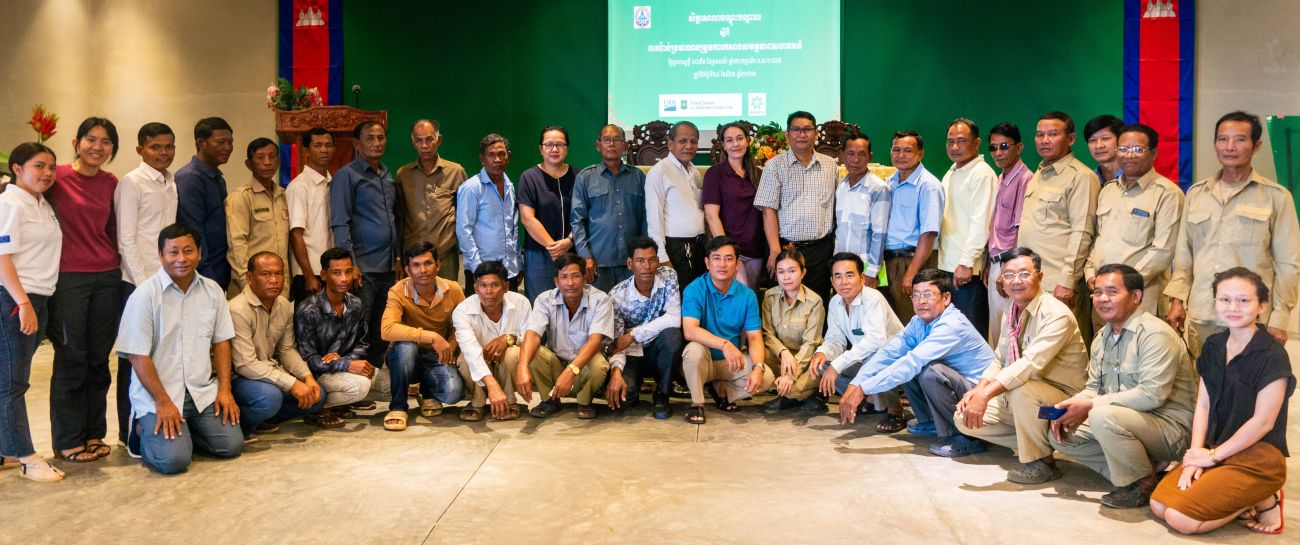
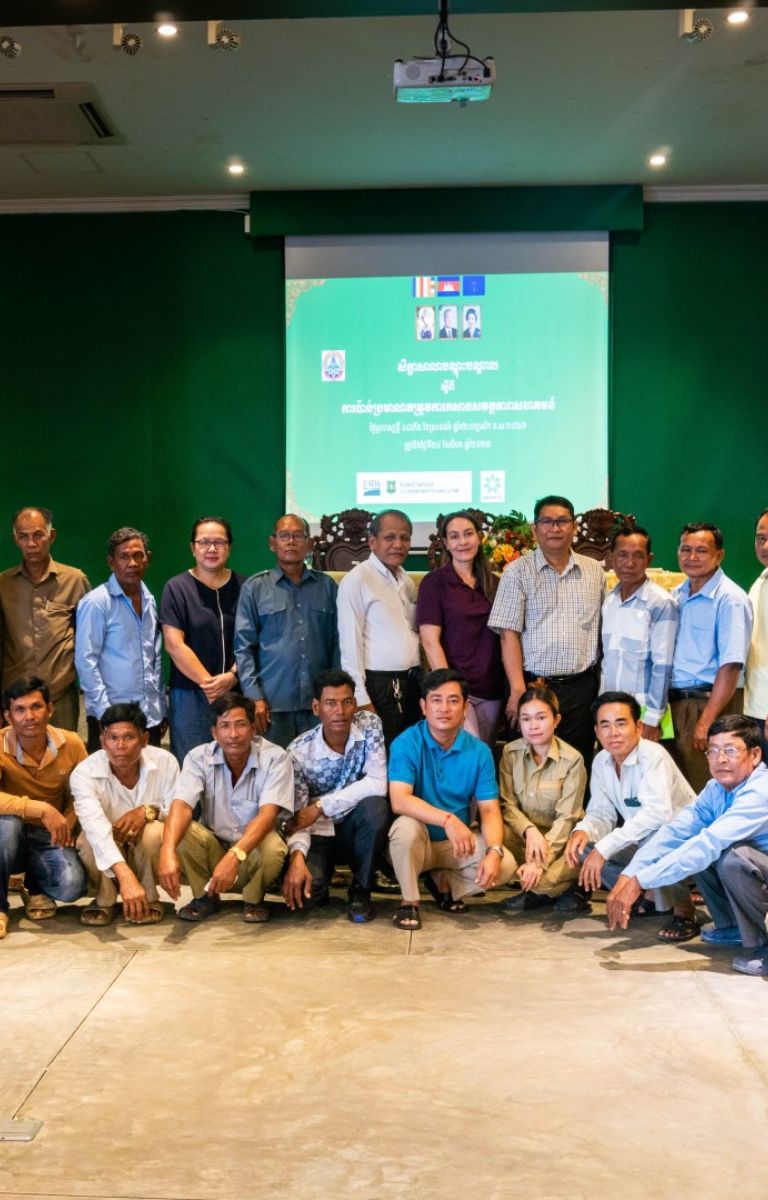
On 24 August 2023, we organized the Capacity Development and Needs Assessment (CDNA) workshop in Pursat, Cambodia, as part of our commitment to protect Cambodia’s valuable forest and fishery areas. This workshop is an important component of our Community-based Fire Management (CBFiM) project being implemented in Cambodia, Lao PDR, Thailand and Viet Nam.
In Cambodia, our project focuses on three community fisheries (CFi): Ou Tabrok, Koh Preak Raing Til and Tram Pear, all located within the Tonle Sap Biosphere Reserve.
Learn more
The CDNA helps us comprehend and address the capacity development requirements of these community fisheries, especially in community-based fire management, and design interventions that align with their needs.
Engaging with communities
Before the workshop, the CBFiM team visited two project sites, Ou Tabrok and Koh Preak Raing Til, to introduce the project and connect with local stakeholders. This pre-workshop outreach activity helped establish connections and gather valuable insights from the communities.
Ou Tabrok CFi

Established in 2003, the Ou Tabrok CFi, includes 526 members, with 277 being women from two villages, Ou Taprok and Chong Khlung, located on both land and floating villages. Covering 2,951 hectares, the CFi features 30 lakes, 2 streams, and a conservation zone for breeding fish. A dedicated CFI management committee oversees various activities, including marking boundaries, educating on fishery laws and flooded forests, patrolling to prevent illegal activities, planting seedlings in burned areas, and managing forest fires within the CFi.
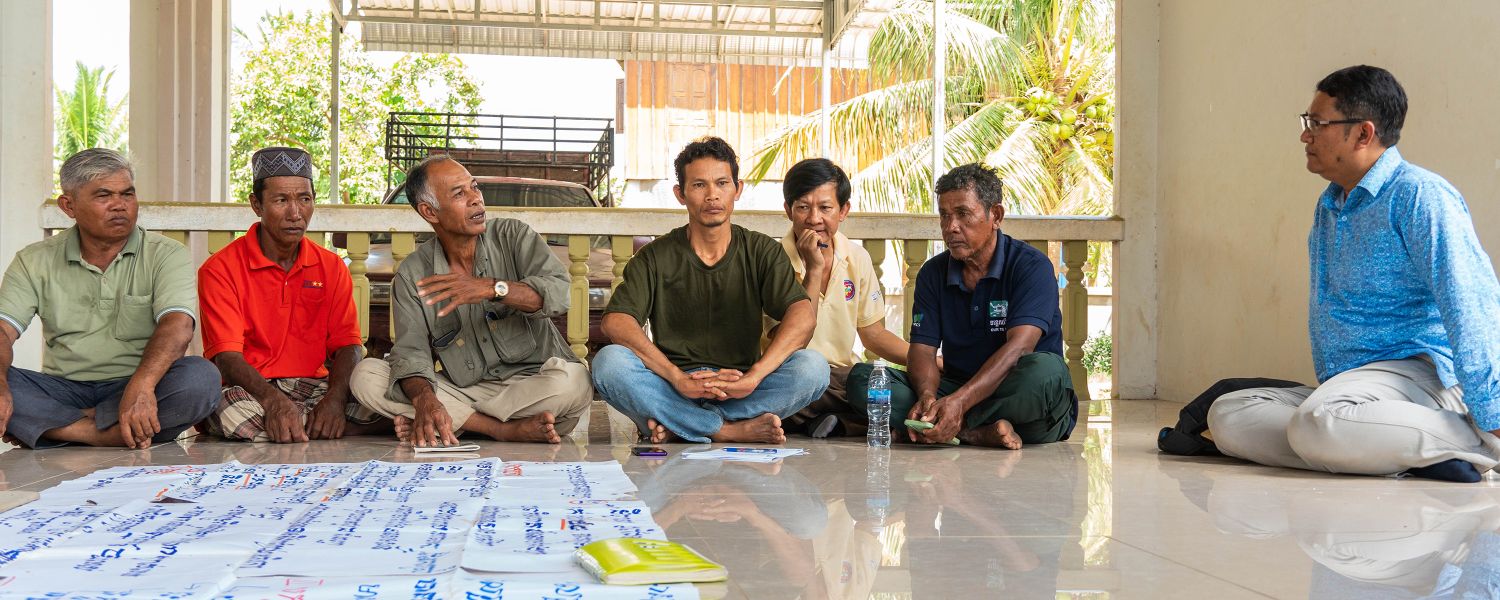
Koh Preak Raing Til CFi

Koh Preak Raing Til CFi, located in Raing Til commune, Pursat province, spans 15,250 hectares of land and water. Established in 2001, it consists of two villages, Raing Til and Preak, with households on land and in floating villages.
With support from RECOFTC, the community formed two forest fire management groups totaling 21 members, including one female member. They planted 7,000 seedlings in fire-affected areas and received essential fire management training. In 2023, the committees conducted 28 patrols to prevent forest fires and educated 130 villagers.

The CDNA Workshop
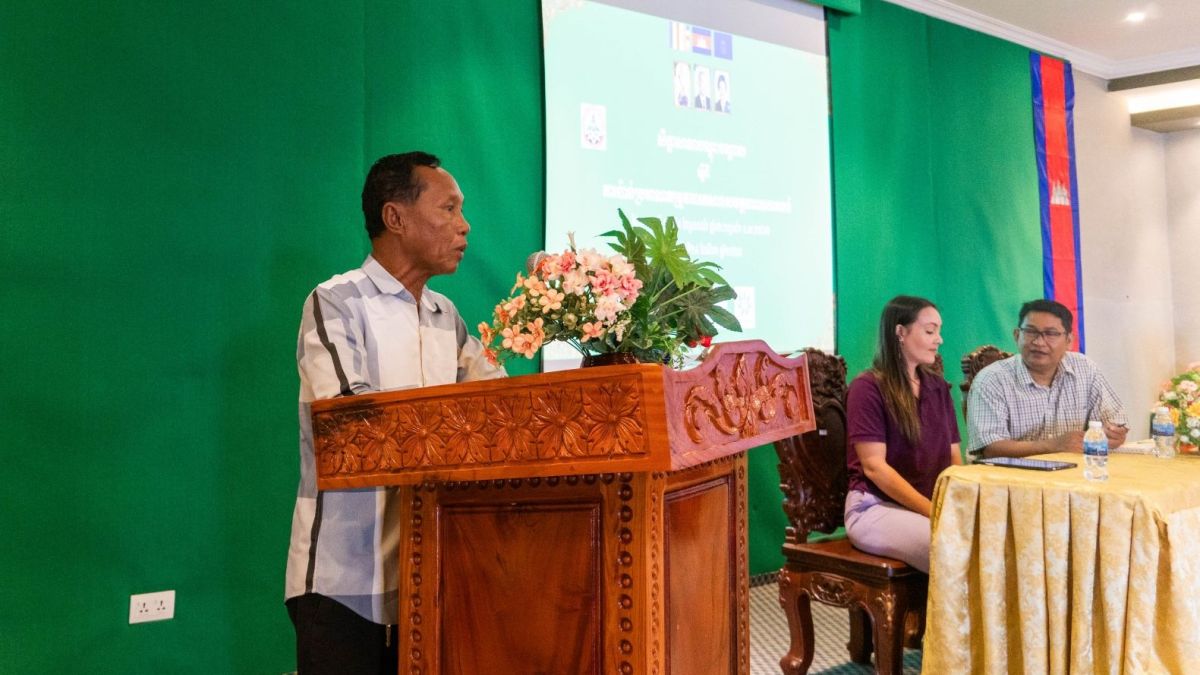
This one-day interactive event brought together 41 participants, representing various stakeholders in community fisheries. Participants included personnel from fishery administration, cantonment and divisions, as well as district offices responsible for agriculture, natural resources and the environment. It also included local authorities at the commune and village levels, along with members of community fisheries management in Cambodia’s target areas.
Chhay Morn, the Deputy Chief of Fisheries Administration Cantonment, opened the workshop emphasizing collaboration and knowledge sharing.
Marina Tornorsam, the CBFiM-Regional Project Coordinator at RECOFTC, presented an overview of the CBFiM project. She outlined the project’s background, objectives and program framework, ensuring that participants had a clear understanding of the project’s goals, proposed timeline and its scope in Cambodia, including the specific community fisheries it covered.
Tools for CDNA process

To ensure a smooth CDNA process, we introduced the following tools to the participants:
- Community fisheries mapping helped identify key areas such as flooded forests, fire-prone zones and fire-resistant zones, as well as how fire behaves in these locations.
- Stakeholder analysis aided in understanding the relationships among key stakeholders and communities involved in managing forest fires.
- The study of fire behaviour and intervention focused on individual community fisheries in identifying types of forest fires, managing them and the tactics employed to put them out.
- A stakeholders capacity needs assessment clarified the roles and responsibilities of each stakeholder, the challenges they face in fulfilling these roles and the skills needed to effectively address these challenges.
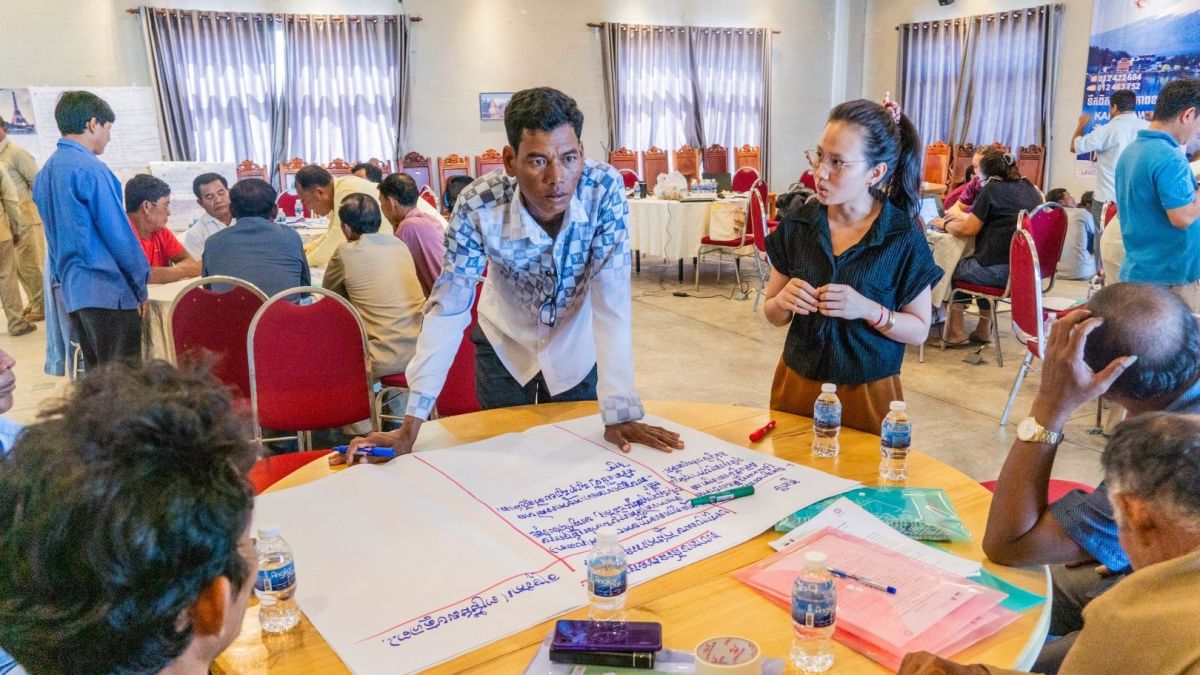
Participants divided into groups and practiced using the tools. They also engaged district office representatives to identify strategies to address challenges and necessary resources for effective fire management.
Representatives from the three CFis presented their findings at the plenary session and took this valuable information back to their respective communities to share the results and learnings gained at the workshop.
Workshop insights
Participants from three different community fisheries discussed their experiences and challenges, focusing on tools and skills needed to better manage forest fires.
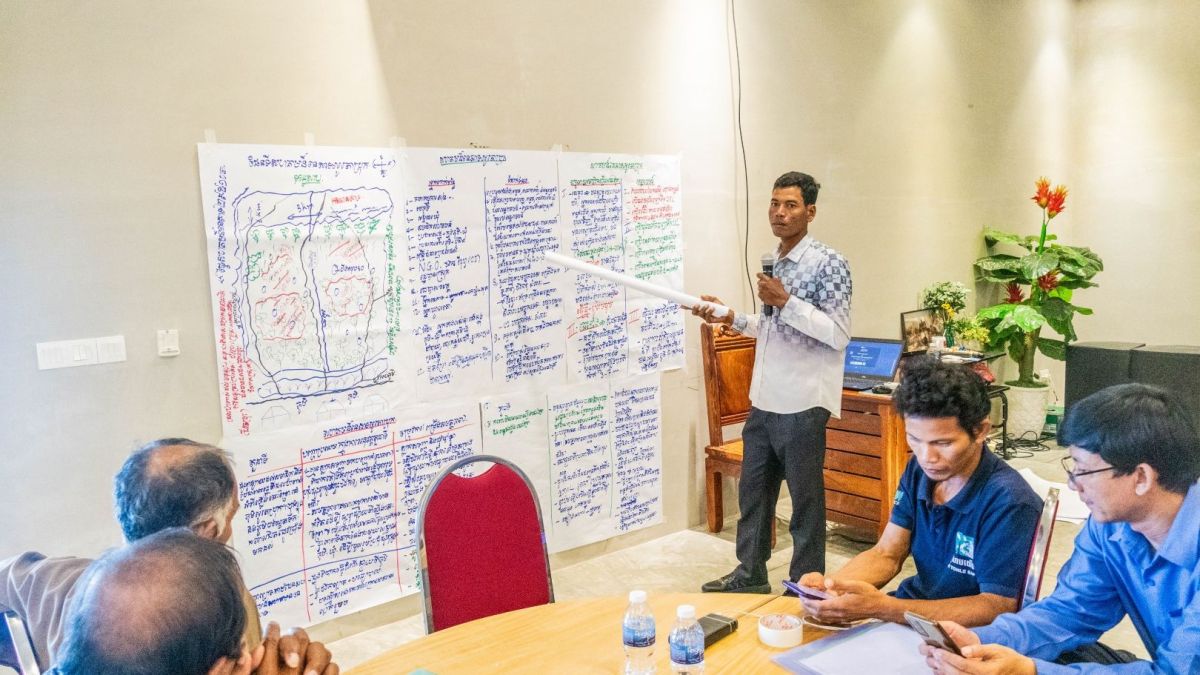
Each community reported frequent forest fires, primarily during the dry season, often human-made, sparked by activities like honey collection, rice stubble burning, discarded cigarette butts and campfires.
Key stakeholders in community-based fire management include fishing committees, local leaders, police and government officials and non-governmental organizations like RECOFTC, Wildlife Conservation Society and Conservation International. Their collective efforts span everything from patrols and law enforcement to education and supplying fire-fighting equipment.
Commune Council member Souy Keo emphasized the positive effect of RECOFTC’s work. He said, "I’m grateful to RECOFTC for uniting our communities and local authorities to work on restoring the forest, which fits well with our objectives."
He added, "The workshop and training on fire management have been a real eye-opener. Learning how to protect ourselves and manage fires better will certainly make our council and communities stronger."
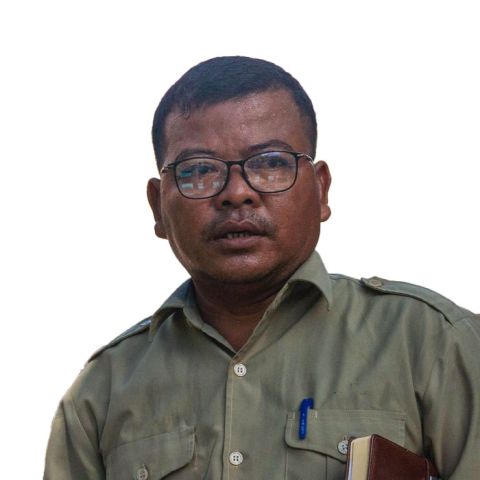
The workshop and training on fire management have been a real eye-opener. Learning how to protect ourselves and manage fires better will certainly make our council and communities stronger. – Souy Keo, Koh Preak Reang Til Commune Council member.
Future steps

Each community has unique needs based on resources, location, and legal status. Key areas for improving fire management include capacity building for CFi management committees, strengthening fire management committees at sub-national levels, providing regular updates on fishing laws and the importance of flooded forests and fire prevention, supplying materials and equipment, and erecting signs and billboards to promote forest protection.
Strong collaboration with relevant stakeholders including local governments, the Fisheries Administration, non-governmental organizations and communities will be essential to protect Cambodia's forest landscapes and fisheries.
The CDNA workshop laid a solid foundation for enhancing community-based fire management in Cambodia. As part of the project's goals, we plan to support the development and implementation of CBFiM plans, enhance capacity for fire management, and facilitate cross-learning and knowledge sharing among focus countries. The project will support the development and implementation of CBFiM plans, establish and enhance capacity to execute fire management activities and equip communities with forest fire-relevant technologies. We also aim to facilitate effective cross-learning and knowledge sharing on CBFiM principles and practice, in-country and between focus countries.
As the project gains momentum, we are conducting CDNA workshops in each of the four focus countries.
###
This story/publication was produced through the Community-based Fire Management (CBFiM) in Asia project, made possible through a five-year cooperative agreement between the USDA Forest Service International Programs and RECOFTC. The project receives financial support from the United States Indo-Pacific Command (USINDOPACOM) of the Department of Defense, along with funding from USAID and the USDA Forest Service International Programs.
For more information, please visit www.recoftc.org/projects/cbfim
RECOFTC’s work is made possible with the support of the Swiss Agency for Development and Cooperation and the Swedish International Development Cooperation Agency.

